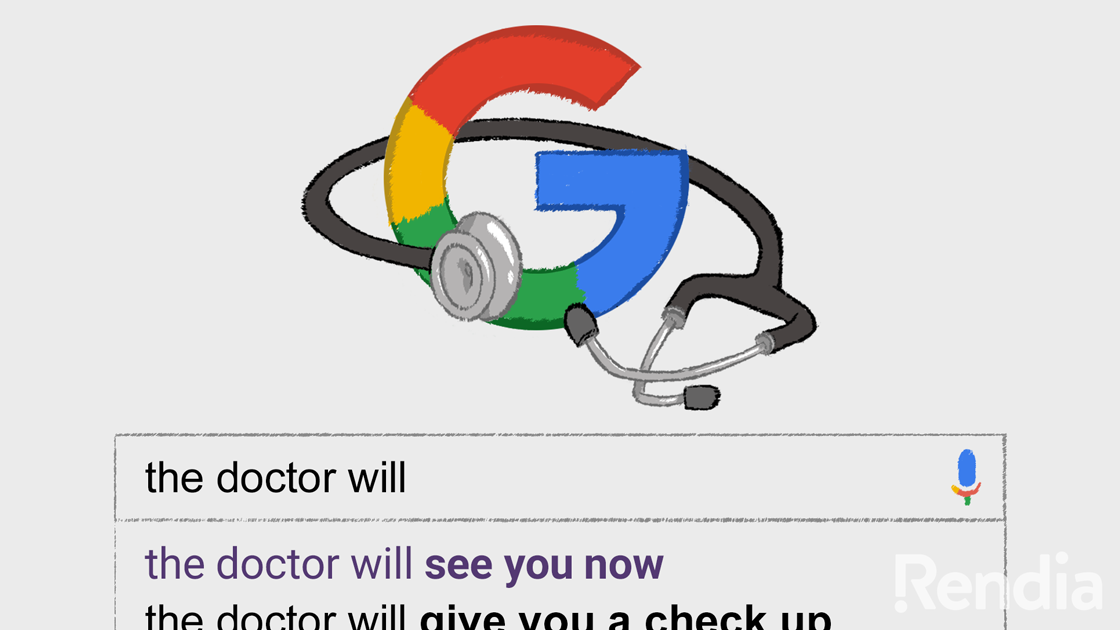How Internet searches for medical info are improving, and what the future holds for health care
A few years ago we ran a post called Should You Be Worried About Dr. Google? In 2017, the question has changed to: Why Haven’t You Embraced Dr. Google? Health-related Internet searches aren’t going anywhere. According to Google, which has an estimated 1.6 billion unique monthly visitors, “roughly 1 percent of searches on Google (think: millions!) are symptom-related.”
Find out what the world’s top search engine is doing to improve health-related searches, how doctors can help patients access better information online, and why Googling symptoms may actually be a good thing, for both doctors and patients.
How Google is improving health searches
With great power comes great responsibility, and Google seems to be taking its role seriously. The company has taken steps to improve the accuracy and usefulness of health-related search results, from rolling out at-a-glance info on over 900 health conditions, to including in symptom search results lists of related conditions, self-treatment options, and suggestions for when to see a doctor.
Google: “We worked with a team of medical doctors to carefully review the individual symptom information” that shows up at the top of search results.
The Google blog states, “We create the list of symptoms by looking for health conditions mentioned in web results, and then checking them against high-quality medical information we’ve collected from doctors for our Knowledge Graph. We worked with a team of medical doctors to carefully review the individual symptom information, and experts at Harvard Medical School and Mayo Clinic evaluated related conditions for a representative sample of searches to help improve the lists we show.”
Because Google’s search results are generated by algorithms, not doctors, not every query will yield accurate information from reputable sources. An NPR reporter found that search results can be contradictory and medically inaccurate, and noted that Google has recently added a feature that allows users to flag bad results.
Of course, the company does state, “symptom search (like all medical information on Google) is intended for informational purposes only, and you should always consult a doctor for medical advice.”
TIME magazine asked six well-known doctors their thoughts about Google’s efforts to improve health searches. The consensus was that anything that helps facilitate informed, engaged patients is a positive step – however, search engines are never a substitute for a health care professional.
How to help patients access better information
To determine whether your patients are getting accurate information on the Internet, first you have to know if and what they’re searching. While some patients may arrive at appointments with stacks of WebMD printouts, just as many may not tell you they’ve Googled their symptoms.
50% of patients do not tell their doctor that they searched their symptoms on the Internet
In a post on KevinMD.com, otolaryngologist Homere Al Moutran, M.D., wrote, “Data showed that more than 50 percent of patients do not share with their doctor that they searched the topic on the Internet.” The only way to know is to ask. You could start a patient visit by asking, “Have you done any research on your own?” By opening up the conversation and remaining nonjudgmental, you have an opportunity to start on the same page as your patient and correct any misinformation.
Dr. Moutran suggests taking it a step further “by recommending accurate keywords that apply to their disease and suggest specific procedures to look up on video sharing platforms.” Better yet, keep them off YouTube and avoid scary search results by providing your own patient education videos. Many doctors who use Rendia do so for this reason – proactively directing patients towards reputable health info can save everyone time and angst. Also, adding Rendia videos to your website improves SEO and makes your site more likely to show up higher in search results.
It’s also smart to advise patients to read several articles on their topic, not just skim the headlines or blurbs that come up at the top of search results. As the above NPR article noted, depending on how the query is phrased, different results can come up in a different order. Patients may have to dig a little for the more reputable sources, like medical journals.
The future possibilities of health-related search data
If we can learn to look at the Internet through a lens of curiosity instead of fear and mistrust, the possibilities for the future of health care are mind-boggling.
In his book, “Everybody Lies: Big Data, New Data And What The Internet Can Tell Us About Who We Really Are,” author Seth Stephens-Davidowitz, former data scientist at Google, proves what most of us probably suspected: what people say in surveys differs widely from what search data reveal. “Using this anonymous aggregate data, we can learn a lot more about people than we’ve really ever known,” he told NPR in a radio interview.
Researchers examining search terms found that searching certain symptoms was far more likely to suggest a future diagnosis of pancreatic cancer.
Stephens-Davidowitz mentioned a study in which Microsoft scientists found that search engine queries could identify people with pancreatic cancer, even before they have received a diagnosis. The study, published in the Journal of Oncology Practice, examined searches that indicated someone had been diagnosed with pancreatic cancer. “From there, they worked backward, looking for earlier queries that could have shown that the [search engine] user was experiencing symptoms before the diagnosis. Those early searches, they believe, can be warning flags,” reported the New York Times.
“While five-year survival rates for pancreatic cancer are extremely low, early detection of the disease can prolong life in a very small percentage of cases. The study suggests that early screening can increase the five-year survival rate of pancreatic patients to 5 to 7 percent, from just 3 percent.”
Does this suggest a future in which search engines answer our health queries with, “You may have pancreatic cancer”? Obviously, this brings up considerable ethical and legal issues, and the study authors acknowledge that this is “new territory for the medical profession,” they told the Times. “I think the mainstream medical literature has been resistant to these kinds of studies and this kind of data,” researcher Eric Horvitz, M.D. said. “We’re hoping that this stimulates quite a bit of interesting conversation.”
For a related post, read How Medical Crowdsourcing Empowers Patients & Doctors
What do you think?
What’s your reaction to Dr. Google: frustration, acceptance, enthusiasm, or something else? Tell us in the comments below. And remember that as a provider, you give patients what only you can offer – namely, a trusted doctor-patient relationship that can’t be replaced by convenience or technology.


